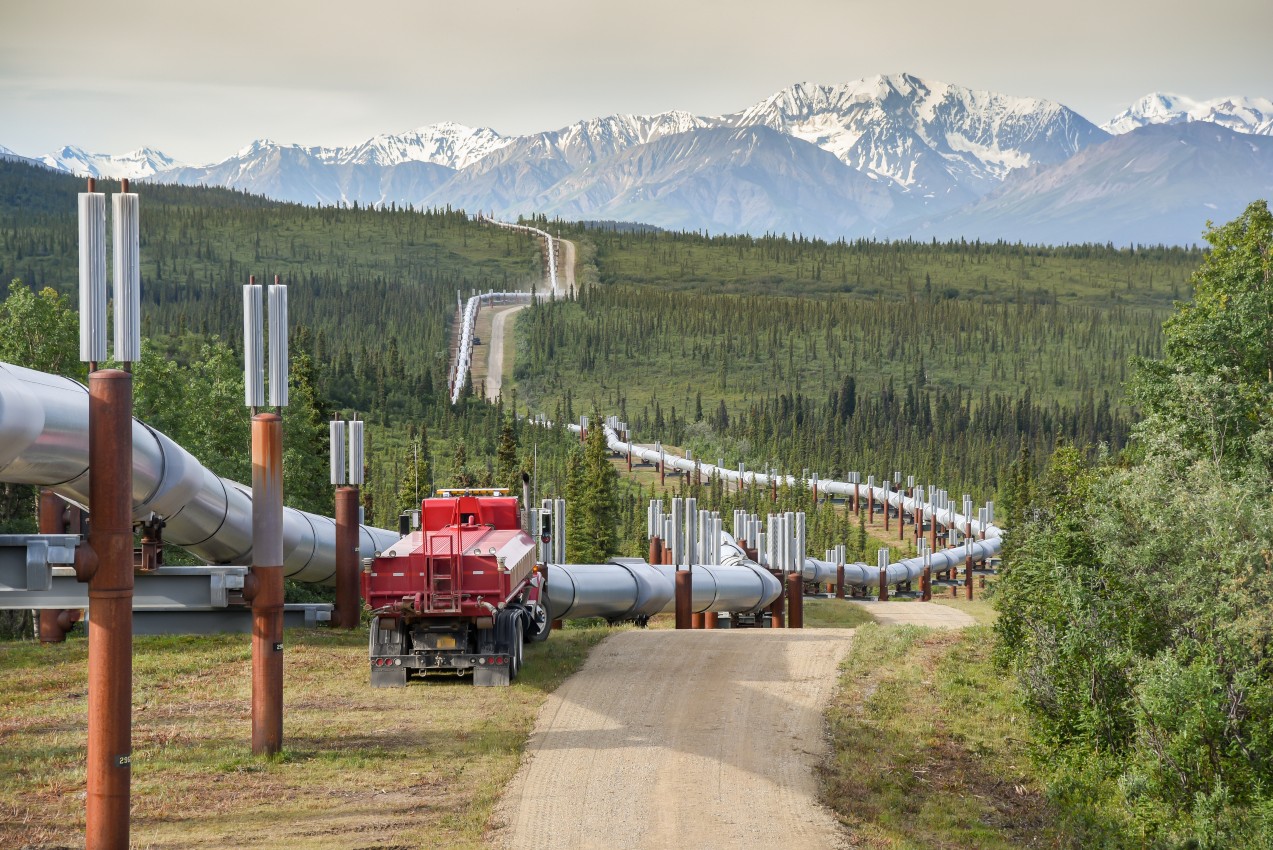Stalemate at FERC could stall Biden clean energy plan, landowner rights reform

A recent change in the chairmanship at the Federal Energy Regulatory Commission could set the stage for a stalemate that could slow reform efforts for landowners rights and environmental justice, along with President Joe Biden’s climate and clean energy agenda.
Biden on Jan. 3 announced that Willie Phillips, who’s served on the commission since December 2021, will become the new acting chair of the commission, or FERC. Phillips, a Democrat, now awaits confirmation by the U.S. Senate to officially chair FERC, an independent agency that regulates the interstate transmission of gas and electricity. His nomination and the departure of former chair Richard Glick mean the commission is split 2-2 among Republicans and Democrats.

Phillips, who formerly served as the chair of the agency regulating energy and telecom providers serving Washington, D.C. (the Public Service Commission of the District of Columbia), has been on the FERC board since December 2021. He takes the position left by former Chair Richard Glick, a Democrat who joined the commission in 2017.
A FERC spokesperson said Phillips was not available for an interview with Oil & Gas Watch News due to schedule conflicts. In a March 2022 interview with FERC staff, Phillips said his top priorities as commissioner are “reliability, affordability, and sustainability.”
“I start with reliability because that is the bulk of my experience,” Phillips said. “Consumers have an expectation that the lights are going to be on 24-7. And as regulators, I believe that we can never forget that that’s job No. 1, keeping the lights on.”
During his two years as chair starting in January 2021, Glick had helped pushed forward new policy changes to promote renewable energy and uplift climate and environmental justice concerns. If finalized, the policies would have significantly shifted the way FERC reviews new projects.
In February 2022, FERC issued a statement on greenhouse gases that would have, for the first time, established a carbon emissions threshold for projects with a "significant" climate impact. Projects of that size could only be approved if their benefits outweigh their costs, and if they underwent rigorous scrutiny and developers paid for projects to mitigate the pollution.”
Another policy change would have broadened the scope of FERC’s review when deciding whether to allow the construction of new natural gas pipelines and facilities. It would have required FERC staff to analyze projects’ impacts on environmental justice communities and landowners, who often have strips of land forcibly sold to energy companies after FERC greenlights a project. The policy change would have allowed FERC to deny a permit if “adverse impacts” outweighed its benefits.
Environmental and property rights advocates celebrated these proposals. Many had been frustrated by a FERC they felt too easily allowed industry the right of eminent domain and didn’t adequately consider the full impacts of its decisions. From 1990 to 2020, FERC approved 1,021 projects while denying only six, an approval rate of more than 99 percent.
Compared to past chairs, Glick had seemed more willing to engage with advocacy groups and more open to reforms. In 2019, before he became chair, he spoke at a conference held by the Property Rights and Pipeline Center, which works with landowners navigating the eminent domain process.
“We were quite excited when he was promoted to chairman,” Rebekah Sale, the center’s director, said in an interview this week. “We thought, ‘Great, maybe some of this can get done.’”
But the energy industry pushed back against the new policies, often citing the Russia-Ukraine war and its impact on the global natural gas market as a reason to block them. In a statement last April, the American Petroleum Institute wrote that the “policy changes would undermine the development of the natural gas infrastructure and facilities that are needed to increase supply here in the U.S. and expand LNG exports to our allies overseas.”
“Without the timely development of these pipelines, the nation’s ability to meet the administration’s commitment to supply natural gas to our allies will be inhibited,” API Senior Vice President Frank Macchiarola said in comments filed with FERC.
Despite these industry statements, a recent analysis by Oil & Gas Watch News shows that the market may not be able to handle all of the U.S. liquefied natural gas soon to be headed abroad. The country has already permitted enough LNG projects to triple its export capacity over the next few years and supply half of global LNG demand in 2030.
Still, the energy lobby proved persuasive enough in Washington that FERC pulled back on both reform policies – to be sensitive to climate and environmental justice issues – labeling them “draft.” Sale, of the Property Rights and Pipeline Center, said the decision was “very disappointing” because the current process is unfair to landowners and “ignores environmental justice.”
Roadblocks also began to emerge for a Senate confirmation of a second term for Glick. In November, Democratic Sen. Joe Manchin, who chairs the Senate’s Energy and Natural Resources Committee, said he would not hold a hearing on Glick’s renomination.
Manchin, a staunch advocate of coal and natural gas, represents the energy-producing state of West Virginia, where multiple long-distance pipelines to move gas outof the state are planned or have been recently built. Those listed on the Oil & Gas Watch database include the Mountain Valley Pipeline, the Eastern Panhandle Expansion Project, and the Ohio Valley Connector Expansion.
Without a path to confirmation, Glick announced in December that he would be stepping down. Looking back, Sale said that “maybe Glick just learned that you can’t just do what’s right in politics.”
“But I feel a little badly that he didn’t push [the new policies], especially if he was going to leave,” she continued. “I wish that he had stayed strong and said, “Hey, these changes need to be made.’”
In a Dec. 29 interview with FERC staff, Glick said that “compromise isn’t a dirty word.”
“We spend a lot of time trying to compromise, sometimes successfully, sometimes not successfully,” Glick said.

With FERC’s future clouded, advocates also focused on lawmakers
Because Willie Phillips, the new acting FERC chair, has only served a year on the commission, many advocates are taking a wait-and-see approach. Senator Manchin, however, praised Phillips’ nomination in a Jan. 3 statement, calling him a “supremely qualified and reasonable person.”
“Mr. Phillips was unanimously confirmed in an evenly divided Senate two years ago –a testament to his qualifications, experience, and ability to bridge divides,” Manchin said. “I look forward to working with … Phillips in his new position as we pursue an all-of-the-above energy policy that will enhance our national and economic security.”
FERC’s remaining three commissioners are Republican James Danly, Democrat Allison Clements, and Republican Mark Christie. Federal law requires that the commission include no more than three members of one party.
The commission, a little-known entity to most, has vast sway over the approval of natural gas pipelines and electrical transmission lines that cross state boundaries. Its role also includes setting rates for the transmission and wholesale of electricity and natural gas. Its origins date back to the 1920s-era Federal Power Commission, established to coordinate federal hydropower projects.
In 1938, the Natural Gas Act gave the FERC’s predecessor power to regulate aspects of the natural gas industry. The commission has never had the authority to approve or deny the construction of interstate oil pipelines, only interstate gas pipelines.
Many clean energy advocates say FERC is in dire need of reforms to help it oversee a transition away from fossil fuels. As Sale put it, “if we’re going to be pushing clean energy across the country, that’s going to mean transmission lines, which is going to mean eminent domain.”
One recent example is a coalition of Midwest farmers and indigenous groups currently fighting a proposed carbon capture and storage pipeline.
“We have to fix this terrible, broken eminent domain process, or it’s going to be a nightmare,” Sale said.
Megan Holleran’s family knows what can happen at the strokeof a FERC pen. In 2016, they almost lost a strip of their 22 acres in the Endless Mountains of Northeast Pennsylvania to Constitution Pipeline to build a line to ship gas to New York.
New York regulators ended up blocking the project, which was canceled in 2020.Holleran’s family kept their land but lost more than 500 trees on their land to contractors’ chainsaws. Many were maple trees the family tapped to make syrup every year.
Looking back, Holleran said their case was “a really good example of FERC not requiring a lot from companies” before giving them the power to force landowners to sell. She said she views Phillips’ job as “being the person who can impartially balance the interests of the landowners and the companies.”
“It hasn’t seemed in the past like the FERC commissioners have taken their role very seriously,” Holleran said “It seems like they tend to just view their job more as being the rubber-stamper, the bureaucracy that files this paperwork, rather than actually doing the job of mediating between the interests of all the different parties involved in these big projects.”

Maya K. van Rossum, who has directed the Delaware Riverkeeper Network since 1994, has sued the commission multiple times over its approval of natural gas lines pipelines from drilling and hydraulic fracturing of the Marcellus Shale formation in northeast Pennsylvania.
Her focus now is on convincing Congress to modernize the Natural Gas Act. One major change would be to update the definition of whether a project is worthy of approval as a “public convenience and necessity” to clearly include an evaluation of environmental and climate issues, public health and safety.
With Republicans closely aligned with the fossil fuel industry now in charge of the U.S. House, these changes might be difficult to pass. In Jan. 7 remarks following a grueling confirmation process, House Speaker Kevin McCarthy said Republicans “pledge to cut the regulatory burden, lower energy costs for families, and create good-paying jobs for workers by unleashing reliable, abundant, American-made energy.”
However, Republicans have plenty of reasons to support FERC reforms, Van Rossum said. Under the current system, “properties are being taken by eminent domain very cavalierly, very quickly and for projects that don’t even have full approval to go through,” she said. “If they’re true property rights advocates, then they need to reform the Natural Gas Act,” Van Rossum said. “And I do believe, despite the public rhetoric, that there are many responsible and smart Republican members in Congress who recognize that economic devastation results from the climate crisis.”
Lead photo: Federal Energy Regulatory Commission headquarters in Washington, D.C. Photo by Ryan McKnight.















